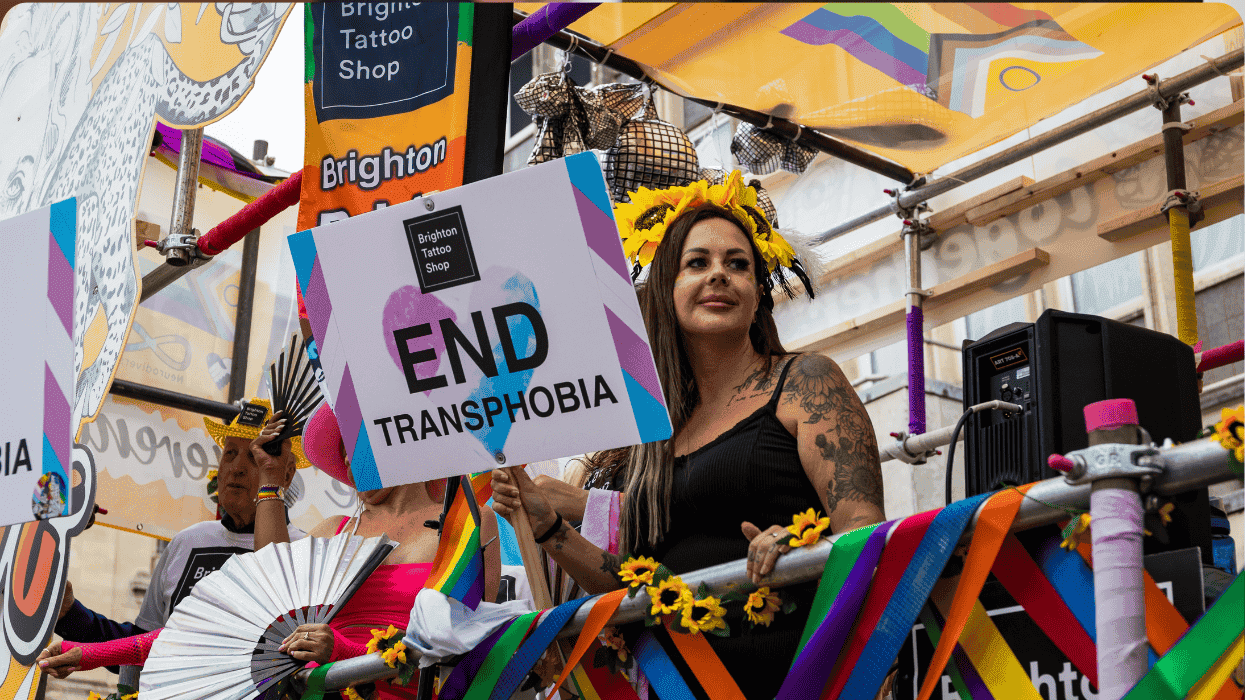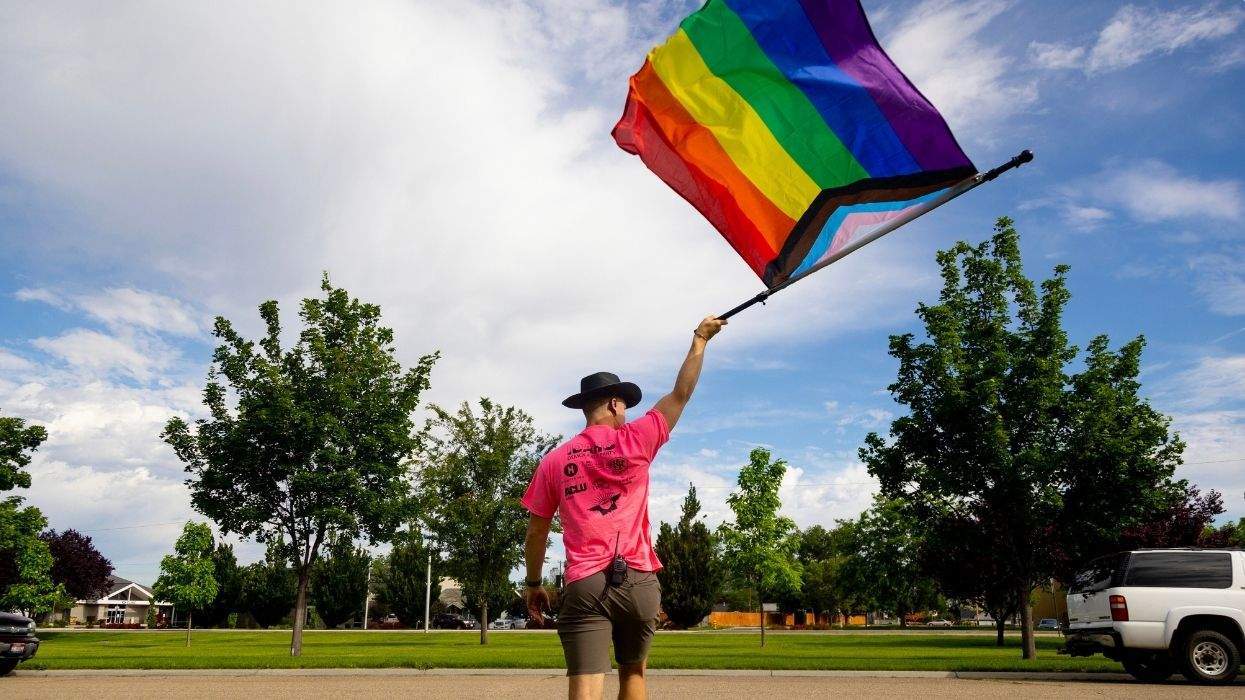Many LGBTQ people across the nation -- especially those of African descent -- have been breathlessly waiting for Robert O'Hara's Bootycandy play to come to our cities. Bootycandy has finally come to Boston, and each show has been sold out.
Bootycandy is O'Hara's thinly veiled coming-out story of growing up African-American and gay. The narrative is told in the voice of a character named Sutter. O'Hara takes the audience on a journey through his childhood home, church, and gay bars, all depicted with excessive flamboyance, ribaldry, and unsettling poignancy.
"[It's] difficult for you to find a narrative in this play until the end, and it's done that way on purpose," O'Hara told Boston radio station WBUR. The structure of the play is a nod to George C. Wolfe's The Colored Museum, which O'Hara admits was a huge influence.
The play opens with a precocious Sutter querying his mother about his genitalia. Showing her unease in having an explicit sit-down conversation about sex parts, the mother euphemistically tells him that his penis is called "bootycandy." Sutter is a gender-nonconfirming effeminate male decked out in full Michael Jackson regalia, complete with one sequined glove. The mother's reluctance to talk about sex and accept her son's gender expression is disturbingly highlighted when Sutter comes home one day from school to inform her that a man has been following him. Because of the politics of silence in the African-American community that chokes healthy conversations on human sexuality, Sutter's mother is not only dismissive of his claim, she immediately wants to know what Sutter did to provoke such an unsavory encounter.
Her solution, however, for her son's unmanly behavior is for him to stop reading Jackie Collins novels, stop listening to Whitney Houston albums, and stop participating in the school's musicals. This scene is absurdly funny, yet poignantly disturbing.
Just when you think you can't laugh any more, there's the hilarious telephone scene between two actresses who play sisters chatting on the phone, one of whom is pregnant and determined to name her baby Genitalia (I personally enjoyed this scene because it reminded me of when one of my friends was determined to name her new born baby girl Uretha, in honor of the Queen of Soul). In a later vignette Genitalia is all grown up, a lesbian and standing before a minister with her soon-to-be ex-girlfriend, Intifada, in an official breakup "noncommitment ceremony." The lesbians' "conscious uncoupling" vignette is a no-holds-barred session of repartee that in the end leaves both women utterly and irrevocably each other's ex.
You cannot be LGBTQ of African descent and not have a personal, yet all too familiar story about black church homophobia. O'Hara's Reverend Benson is your assumed classic fire-and-brimstone exhorter, especially with his call-and-response homily. But Benson has a secret of his own. Preaching a black queer liberation theology that excoriates the church's gossipmongers (the "I Heard Folks" who congregate and become the "They Heard Folks") in defense of its gay choirboys, Benson finally discloses his secret by disrobing and revealing what's underneath his vestment.
Homophobia is a running thread in many of the vignettes, particularly that of the black church, with repeated explorations of the issues a young gay black male's coming-out confronts -- like racism, sexual abuse, and poverty -- and how that might shape one's self-esteem and future relationships.
The best way to describe Bootycandy is to call it a tragicomedy -- a play that uses humor and comedic moments to illustrate not only one's painful personal journey of coming out, but also one's unresolved pain and trauma from sexual abuse. One of the most disturbing moments in the play is the last of several gay bar/cruising scenes. Sutter and his friend pick up a drunken white "supposedly straight" man who solicits the two men. The friends follow the white man home and then sexually humiliate him. Sutter's eagerness and cold indifference regarding the man's sexual request suggests both racial and psychosexual revenge for his childhood sexual seduction by an older white man.
In the vignette "Conference," there's a mock panel discussion between four African-American playwrights, each of whom has written one of the previous vignettes the audience has seen, and a clueless white moderator condescendingly asks the writers, "I'm wondering what you are hoping the audience comes away with after seeing your work?"
Sutter: I think the audience should choke.
Moderator: Choke?
Sutter: Asphyxiate.
Writer 1: I don't want them to digest it easily.
Bootycandy isn't easy to digest. You leave the theater knowing O'Hara's journey was extremely difficult -- like that of so many LGBTQ people of African descent. While O'Hara doesn't touch on how HIV and AIDS are ravaging our communities and the black church's continued silence on the subject, he masterfully shows that laughter, drawn from the absurdities of black homophobia, may be the only thing that keeps us from crying.
Find out more about Bootycandy here.
REV. IRENE MONROE is a writer, speaker, and theologian living in Cambridge, Mass.















